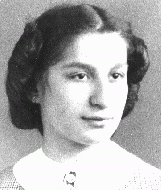You searched for: 5G基站项目系统搭建【TG���������@EK7676】平台包网搭建5G基站项目系统搭建【TG���������@EK7676】平台包网搭建mOHC8Gtglh
<< Previous | Displaying results 131-140 of 250 for "5G基站项目系统搭建【TG���������@EK7676】平台包网搭建5G基站项目系统搭建【TG���������@EK7676】平台包网搭建mOHC8Gtglh" | Next >>
-
Columbia-Haus
ArticleThe Columbia-Haus camp was one of the early camps established by the Nazi regime. It held primarily political detainees. Learn more about the history of the camp.
-
World War II Dates and Timeline
ArticleWorld War II was the largest and most destructive conflict in history. Learn about key WWII dates in this timeline of events, including when WW2 started and ended.
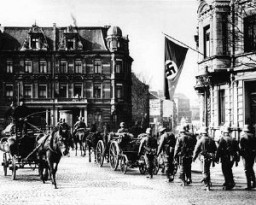
-
Zdziecioł (Zhetel)
ArticleThe Nazis occupied Zdziecioł (Zhetel), Poland in 1941. Learn more about the city and ghetto during World War II.
-
1943: Key Dates
ArticleExplore a timeline of key events during 1943 in the history of Nazi Germany, World War II, and the Holocaust.
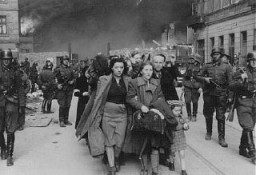
-
Uckermark Youth Camp
ArticleThe Uckermark camp was one of the so-called youth protection camps that the Nazi regime established for young people who were alleged to have strayed from Nazi norms and ideals.
-
Vita Rivkina
ID CardBecause both of her parents had died by the time Vita was 5 years old, she went to live with her cousins. At the age of 18, Vita married Iosif Rivkin, and the couple moved to Minsk where they raised three daughters--Hacia, Dora and Berta. 1933-39: By the early 1930s, the Rivkin family lived on Novomesnitskaya Street in central Minsk, near the Svisloch River. In the 1930s the girls attended Soviet state schools and were members of the Soviet youth organization, Young Pioneers. By the late 1930s Minsk was…
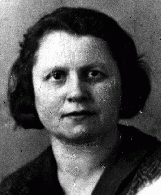
-
Zuzana Gruenberger
ID CardZuzana was the youngest of three children born to Hungarian-speaking Jewish parents in the city of Kosice. She was the baby of the family, and they called her Zuzi. Her father was a tailor whose workshop was in the Gruenbergers' apartment. 1933-39: In November 1938, when Zuzana was 5, Hungarian troops marched into Kosice and made it a part of Hungary. The Hungarians changed the name of the city to Kassa. The Hungarian government was friendly to Nazi Germany and introduced anti-Jewish laws in…
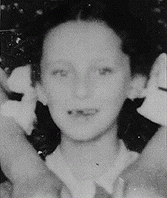
-
Henry Maslowicz
ID CardHenry's Jewish parents lived in a Polish town in which their families had lived for 150 years. The Jewish community enjoyed good relations with their Polish neighbors; the local Polish population refused to cooperate when the government encouraged a boycott of Jewish businesses during a wave of antisemitism that swept Poland in the mid-1930s. 1933-39: In the years before Henry was born, his father owned an iron and coal factory. The Germans occupied Wierzbnik on September 5, 1939. While some Jews fled,…
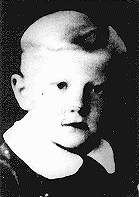
-
Ossi Stojka
ID CardOssi was the youngest of six children born to Roma ("Gypsies") who traveled in a family wagon. His family was Roman Catholic. Their caravan spent winters in Vienna, Austria's capital, and summers in the Austrian countryside. The Stojkas belonged to a tribe called the Lowara Roma, who made their living as itinerant horse traders. Ossi's ancestors had lived in Austria for more than 200 years. 1933-39: Ossi was 2 years old when Germany annexed Austria in March 1938. The Stojka family wagon was parked for the…
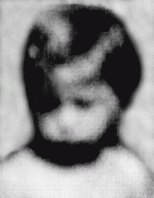
-
Bertha Adler
ID CardBertha was the second of three daughters born to Yiddish-speaking Jewish parents in a village in Czechoslovakia's easternmost province. Soon after Bertha was born, her parents moved the family to Liege, an industrial, largely Catholic city in Belgium that had many immigrants from eastern Europe. 1933-39: Bertha's parents sent her to a local elementary school, where most of her friends were Catholic. At school, Bertha spoke French. At home, she spoke Yiddish. Sometimes her parents spoke Hungarian to each…
